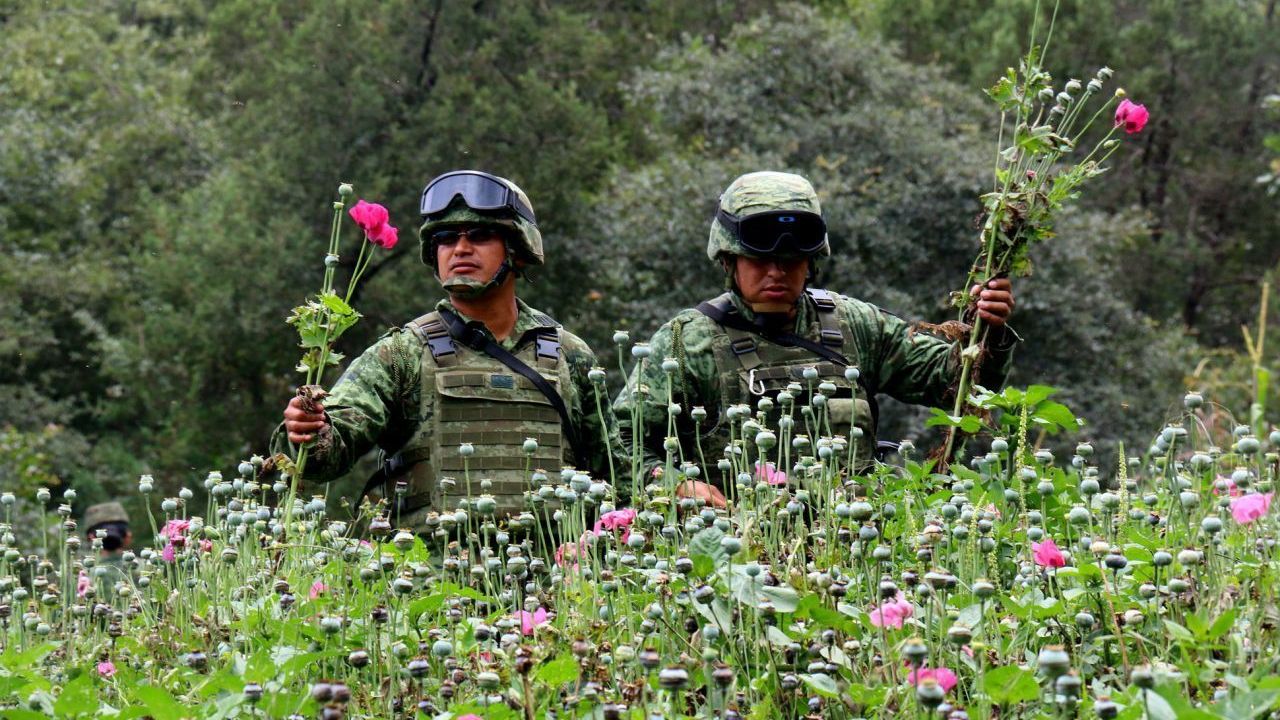Image via
One of the highest-ranking women in the Mexican government has restated her support for not only decriminalizing cannabis — a foregone conclusion as the country’s lower legislative house prepares to debate a legalization bill — but also the poppy. As in, the opium poppy.
This is huge. Mexico has been the primary supplier of heroin and other illegal opiates to the United States for decades. Poppy farmers argue that the cultivation of these outlawed flowers (the raw material from which opiates are made) is the only way to make a living in many regions.
On January 26, Olga Sánchez Cordero, the country’s first woman Secretary of the Interior, stepped in for President Andres Manuel López Obrador (aka: AMLO) at his daily morning press conference. She stepped in for the president who is still in isolation after coming down with COVID in January.
“Speaking of the poppy, there will come a moment, probably not immediately but in the medium-term, in which opiates could be regulated by legislation so that we can obtain all the kinds of medicine that is made from them,” Sánchez Cordero told reporters. “For example, morphine and other kinds of very necessary sedatives.”
In the same presentation, the Secretary of the Interior stated that she believed the law legalizing recreational cannabis would be finalized in the coming months.
Sánchez Cordero also emphasized the importance of such agriculture in supplying employment to indigenous communities, particularly those organized around the Mexican communal farming structure called the ejido.
Over the last months, reports of at-times violent conflicts between poppy farmers and military police have emerged from the state of Guerrero. Last week, an incident occurred in which around 150 troops went to destroy poppy fields in the town of San Miguel Totolapan. They were met by a group of 200 campesinos who tried to unsuccessfully block them before some were reportedly beaten by the soldiers.
This is far from the first time that Sánchez Cordero has suggested that such conflicts might be remedied by dismantling facets of opiate prohibition. The former Supreme Court justice and one-time senator has counseled AMLO since the beginning of his presidential term to end the war on drugs.
But that negotiation has proven to be an uphill battle. Although AMLO has indicated that he will sign the cannabis legalization legislation currently awaiting the approval of Mexico’s lower legislative house, he also blamed last year’s record-breaking murder rates on victims’ drug consumption.
Mexico’s Supreme Court declared recreational cannabis prohibition unconstitutional in 2018. Legalization advocates have since been in limbo while legislators slowly craft the regulation to make the Court’s declaration law.
But not everyone has been patient.
In October 2019, Mexico City pro-legalization legislator Ana Lucía Riojas Martínez gifted Sánchez Cordero a joint on the legislative floor.
“What I did wasn’t legal,” Riojas later told a television news reporter. “It’s a symbol to remind the Secretary of the Interior, who proposed legalizing the consumption of some drugs when she was senator, that this is the road.”
Follow Caitlin Donohue on Instagram and listen to her Spanish language cannabis radio show, Crónica.




![Snoop Dogg Plays Madden 20 with his Homies in the GGL VIII Championship [PART 2]](https://merryjane.com/wp-content/uploads/2024/04/1575590272389_ScreenShot2019-12-05at3.57.40PM.png)






